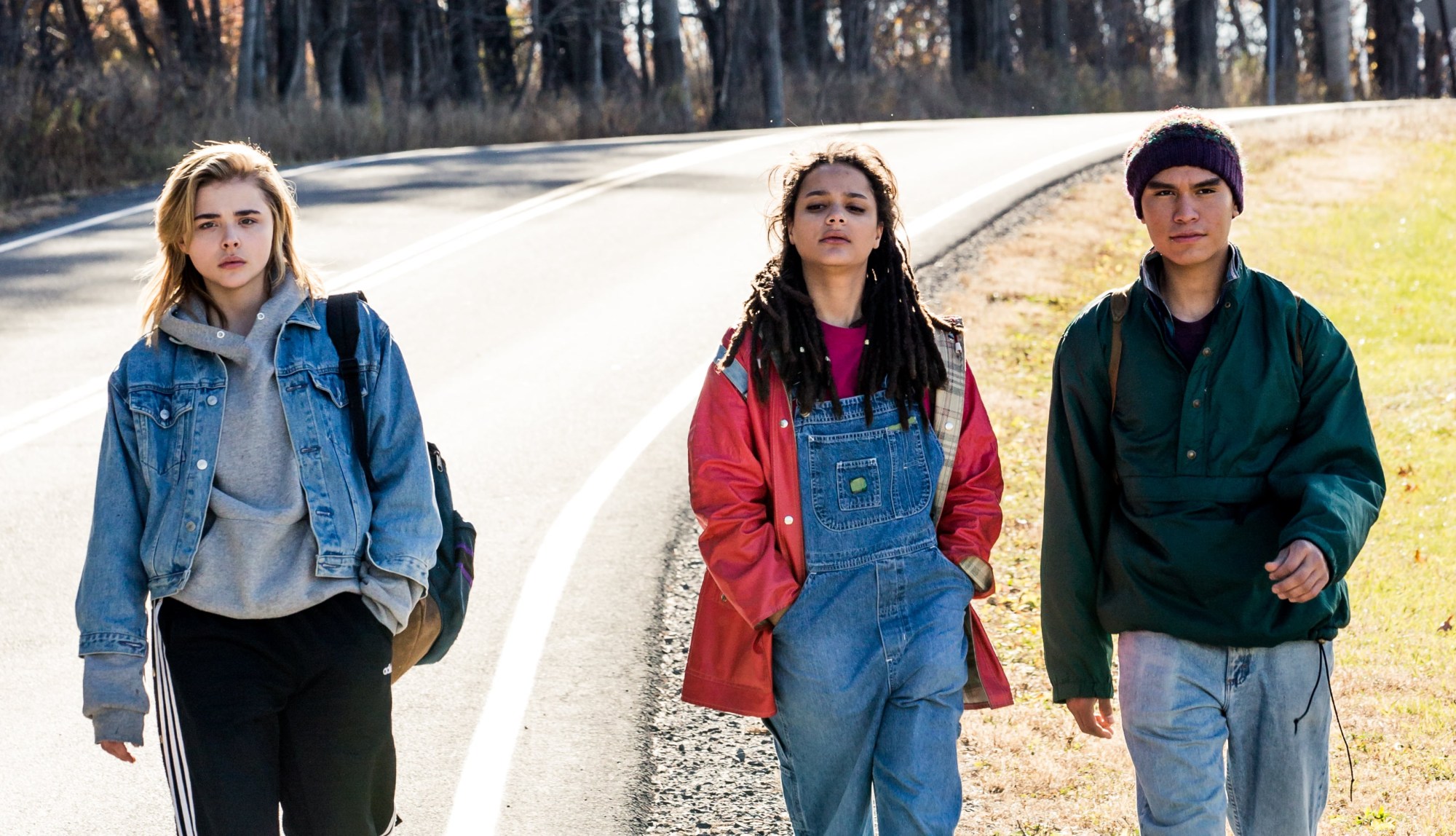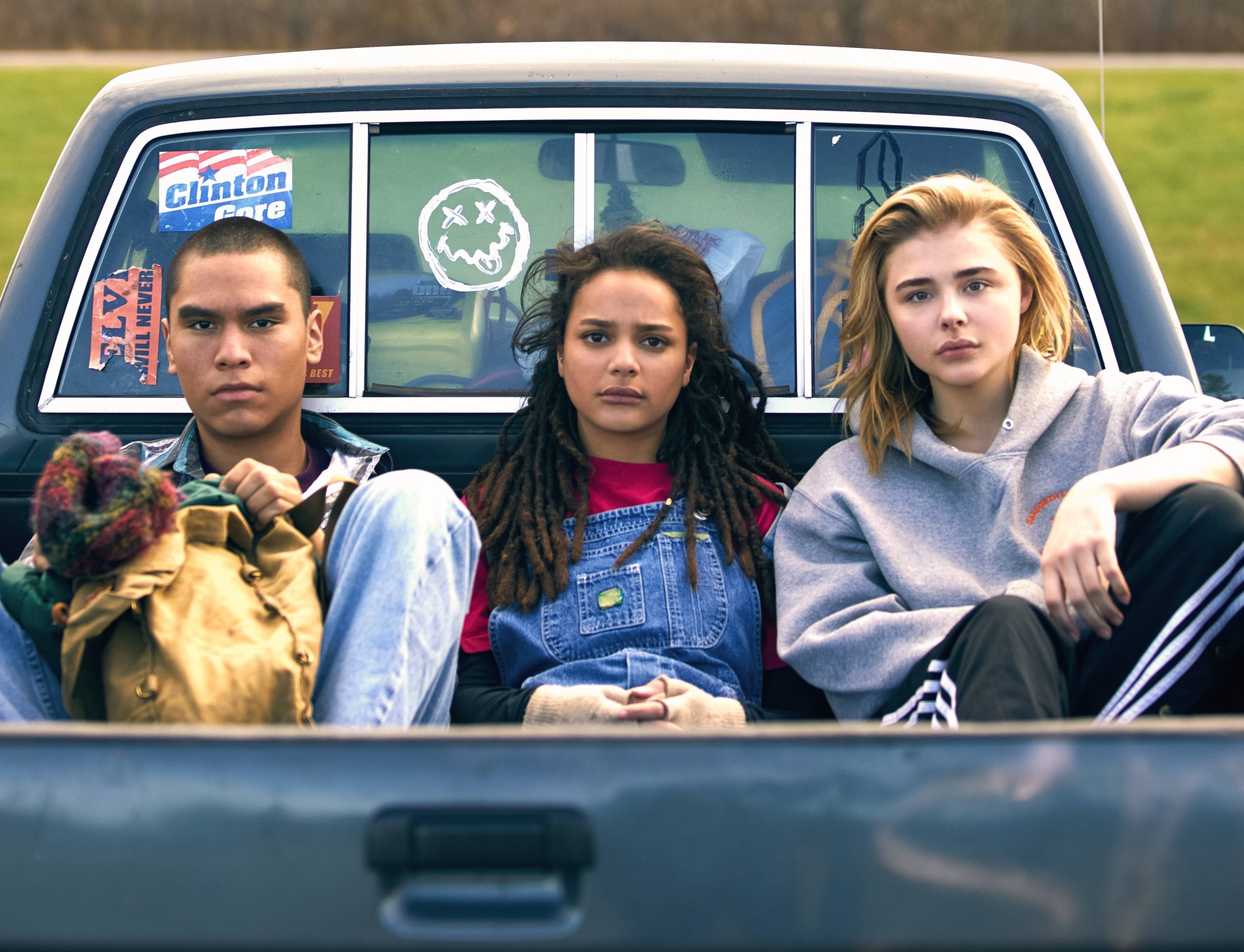Somewhere towards the end of my time with Forrest Goodluck, the 20-year-old star of The Miseducation of Cameron Post, he seems to forget that he’s starring in five movies next year.
Although the Albuquerque native — who you may remember as Leonardo DiCaprio’s son, Hawk, in 2015’s Oscar winning The Revenant — intends to continue working in film, he initially answers my question of ‘what’s next?’ with his plans to study history at the prestigious Stanford University. “My goal while I’m there is just to be around a bunch of kids that are smarter than me and listen,” he says. “Having an education in something I feel completely stupid in is probably the best way to start learning more.”
In his defence, Forrest appears to explain The Miseducation of Cameron Post in a pretty un-stupid manner. Directed by Desiree Akhavan, it centres around the friendship of three LGBTQ teens forced into a gay conversion therapy camp in the 90s. Forrest stars alongside Chloë Grace Moretz and Sasha Lane as Adam, a Native American teen sent to the camp by his father, and talks at length about his character’s role as a self-identifying winkte; a Lakotan word [theLakota are a Native American tribe] which translates directly as ‘killed by woman’.
“The definition is actually less precise,” Forrest explains. “It describes the feeling of a female/feminine spirit entering the body and having this energy that is fighting with the masculine/male spirit. And it’s actually really cool that it has this poetic definition. In many ways, I don’t think English reaches that far. Our words are labelled to precise definitions.”

He describes how in the past, winkte identity was culturally accepted by native peoples. “Not all tribes,” he caveats. “But what’s interesting is that, while with western colonisation you start to see the word ‘winkte’ as something synonymous with the word ‘faggot’, back in the day, most tribes either had a winkte or a winkte equivalent. I think we’re just starting to see the reclaiming of the two-spirit identity, and that is a very new thing to happen.”
Adam’s reclaiming of the term is, according to Forrest, not only a powerful way of challenging homophobia and heteronormativity, but also a challenge to the systems of colonialism which morphed the word into something pejorative in the first place. “I think there are a lot of very subtle nods in the film to the reality of colonisation in this country,” he says. “I mean, I’m Navajo, my father is Navajo, we aren’t Mormon, but I think around 50% of Navajos are. There’s a lot of religious oppression within our communities that we have internalised after years of genocide. I think what’s really cool about this film is it points to the fact that the younger people are starting to reclaim their traditions again. Reclaim a lost identity which has been buried in a lot of pain.”
“I think the film is frankly a scream out to everybody who sees it, that being who you are is okay, and that nobody can take your identity away from you.”
Forrest describes preparing for the role by meeting with a Lakota winkte in a ‘friendly house’, or Native American meeting house, in New York. “I heard about his experience growing up in the 70s and 80s, exactly around the time Adam would have grown up, and knowing that was probably the most interesting as well as informative part of learning about who Adam was,” he says. “He would have experienced bullying, but specifically Native flavoured bullying, and that kind of bullying is not something we ever really see on screen.” He goes on to explain that one of the most rewarding parts of the experience was when two winkte people approached him outside of a theatre at the Seattle International film festival. “They were so happy to see themselves represented. It was the first time it had ever happened.”
“I think the film is frankly a scream out to everybody who sees it, that being who you are is okay, and that nobody can take your identity away from you,” he continues. “There are a lot of young people who don’t feel like their voices matter. But our voices do matter and should be heard. We can shape so much of our own world just by explaining and exploring how we feel.”
The Miseducation of Cameron Post is released nationwide 7 September.
